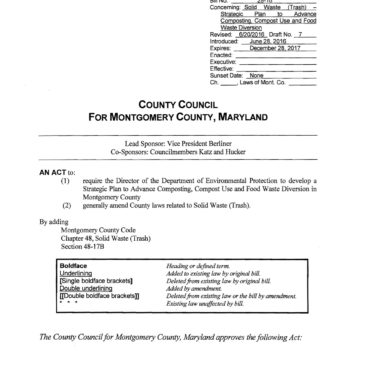Ohio – Composting Rules
In the Midwest, Ohio’s composting regulations are a great model for the region and other parts of the country. Officials have designed rules to suit various land uses (i.e. rural, suburban, urban) and made special effort to adapt to contemporary community needs via permit exemptions. … Read More




